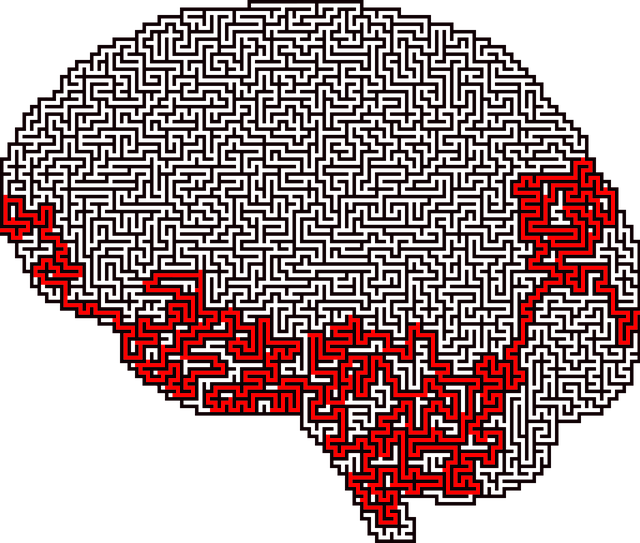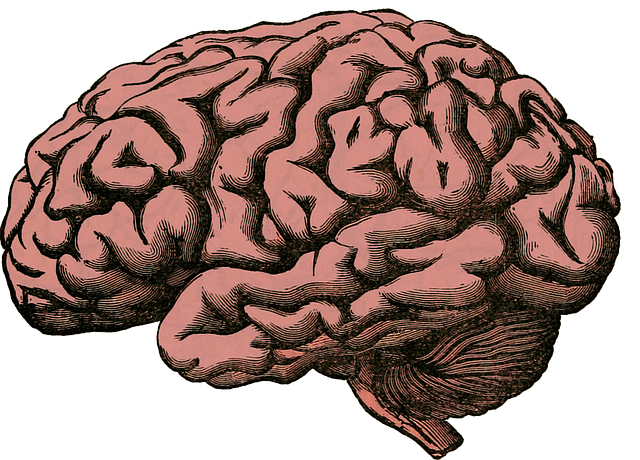In the contemporary world, mental health and wellness are crucial concerns, as recognized by the WHO, which defines well-being as realizing one's potential and contributing to communities. Englewood Pain Management Therapy (EPMT) emphasizes holistic healthcare approaches, integrating physical pain management with wellness coaching programs that empower individuals with stress management, emotional intelligence, and resilience skills. Coaching, a pivotal tool at EPMT, offers a supportive environment for exploring thoughts and feelings, promoting mental wellness through strategic conversations and evidence-based techniques. Their personalized approach combines cognitive behavioral therapy (CBT) and mindfulness training, fostering self-awareness and enhancing coping mechanisms. EPMT evaluates program success using multi-faceted methods, tracking KPIs like reduced anxiety symptoms and improved well-being, while also assessing broader community impacts.
In today’s fast-paced world, mental wellness is a cornerstone of overall health, with an increasing focus on evidence-based solutions. This article explores the development of Mental Wellness Coaching Programs, a revolutionary approach to fostering resilience and coping mechanisms in individuals seeking improved well-being. We delve into the significance of coaching as a complementary therapy, offering strategies for effective program design and integration of proven techniques. By examining evaluation methods, we highlight how these programs can make a tangible impact, akin to Englewood Pain Management Therapy’s holistic approach to patient care.
- Understanding Mental Health and Wellness in Contemporary Society
- The Role of Coaching in Promoting Mental Wellness
- Designing Effective Mental Wellness Coaching Programs
- Integrating Evidence-Based Practices into Coaching Interventions
- Measuring Success: Evaluation and Impact Assessment for Mental Wellness Coaching
Understanding Mental Health and Wellness in Contemporary Society

In contemporary society, mental health and wellness have become paramount concerns, with an increasing recognition of their impact on overall well-being. The World Health Organization (WHO) defines mental health as a state of well-being where individuals realize their own potential, can cope with normal stresses of life, work productively, and are able to make a contribution to their communities. This evolving understanding underscores the importance of holistic approaches to healthcare, including the integration of Englewood Pain Management Therapy within broader wellness coaching programs. Such programs aim to empower individuals by equipping them with essential skills for managing stress, improving emotional intelligence, and fostering resilience in the face of life’s challenges.
The significance of mental wellness is further underscored by the rising prevalence of mental health disorders globally. Effective interventions demand a nuanced understanding of cultural dynamics and the development of healthcare provider cultural competency training to ensure inclusive care. Stress management techniques, for instance, need to be tailored to diverse populations, recognizing that what works for one individual may not be suitable for another due to cultural or personal factors. By embracing this diversity, mental wellness coaching programs can better serve their communities, contributing to a more equitable and accessible healthcare landscape.
The Role of Coaching in Promoting Mental Wellness

Coaching plays a pivotal role in promoting mental wellness by providing individuals with a supportive and structured environment to explore their thoughts and feelings. Through strategic conversations and evidence-based techniques, mental wellness coaches help clients develop essential skills for stress reduction methods, emotional regulation, and anxiety relief. This personalized approach goes beyond traditional therapy, focusing on empowering folks to take an active role in their mental health journey.
Englewood Pain Management Therapy recognizes the value of coaching as a complementary tool. By integrating these practices, coaches can facilitate profound changes, enabling clients to cultivate resilience, enhance coping mechanisms, and ultimately achieve a greater sense of well-being. This holistic strategy ensures that individuals not only manage symptoms but also develop long-lasting strategies for navigating life’s challenges with grace and poise.
Designing Effective Mental Wellness Coaching Programs

In designing effective mental wellness coaching programs, a holistic approach is essential to cater to the diverse needs of individuals seeking support. At Englewood Pain Management Therapy, we recognize that mental health and well-being are intricately linked to physical pain management. Thus, our coaching programs integrate both aspects, offering tailored interventions. This involves assessing clients’ unique challenges and aspirations, whether it’s managing stress, anxiety, or developing healthier coping mechanisms. By combining evidence-based practices with personalized strategies, coaches can guide individuals toward sustainable mental wellness.
The curriculum should include modules focused on conflict resolution techniques, resilience building, and coping skills development to empower clients in navigating life’s demands. Regular feedback loops and reflective exercises are vital components of these programs, enabling participants to track their progress and make necessary adjustments. Through interactive sessions and a supportive environment, Englewood Pain Management Therapy aims to foster mental agility and emotional resilience, ultimately enhancing individuals’ ability to thrive despite challenges.
Integrating Evidence-Based Practices into Coaching Interventions

Integrating evidence-based practices into coaching interventions is a pivotal strategy for enhancing mental wellness programs. By incorporating techniques such as cognitive behavioral therapy (CBT) and mindfulness training, coaches can offer clients effective tools to manage stress, overcome challenges, and foster emotional healing processes. This approach aligns with the principles of Englewood Pain Management Therapy, emphasizing holistic care that addresses both physical and psychological aspects of well-being.
The Mental Wellness Podcast Series Production and Stress Management Workshops Organization play a significant role in disseminating these evidence-based practices. Through engaging podcasts and workshops, individuals can access valuable insights and practical strategies for improving mental wellness. These educational resources not only equip people with coping mechanisms but also promote self-awareness, resilience, and overall well-being, ultimately contributing to the development of comprehensive coaching programs.
Measuring Success: Evaluation and Impact Assessment for Mental Wellness Coaching

Evaluating the success and impact of mental wellness coaching programs is crucial to ensure their effectiveness and make informed improvements. This process involves a comprehensive assessment that goes beyond simple client satisfaction surveys. It includes tracking key performance indicators (KPIs) such as reduced symptoms of anxiety or depression, improved coping strategies, and enhanced overall well-being. At Englewood Pain Management Therapy, we employ a multi-faceted approach to evaluation, combining qualitative feedback from clients with quantitative data analysis. This method allows us to identify areas where the program excels and pinpoint aspects that may need refinement in our Mental Wellness Coaching services.
Furthermore, assessing the impact of coaching extends beyond individual clients. It involves considering the broader implications for mental health within communities. By measuring changes in stigma reduction efforts or the implementation of best practices in Risk Management Planning for Mental Health Professionals, we can contribute to a more supportive and inclusive environment. Through continuous evaluation and Mental Health Education Programs Design, Englewood Pain Management Therapy aims to stay at the forefront of effective coaching methodologies, ultimately fostering positive mental health outcomes on a larger scale.
Mental wellness coaching programs, such as those offered by Englewood Pain Management Therapy, are gaining recognition as powerful tools to enhance overall well-being. By integrating evidence-based practices and focusing on individual needs, these programs can effectively promote mental health in today’s society. Through careful design, tailored interventions, and rigorous evaluation, coaches play a crucial role in supporting individuals’ mental wellness journeys, offering hope and actionable strategies for a healthier, happier life.














